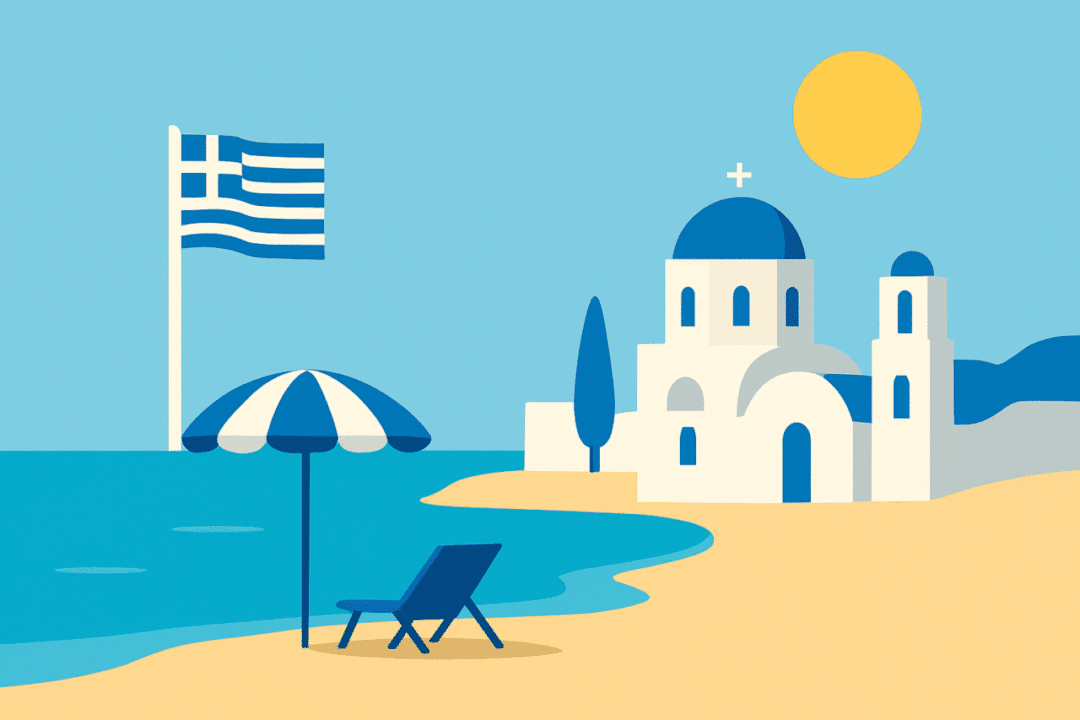Ah, Greece. That magical country where tourists arrive and are welcomed by “world-class” infrastructure – also known as airports that collapse every August, ferries that run on 1960s engineering, and beaches that look like they’ve been rented out by the square meter.
For three shining months, the nation transforms into Europe’s open-air mall. Services blossom overnight: tavernas suddenly rediscover the art of cooking, hotels pretend they discovered minimalism, and every corner café becomes a temple of “authentic hospitality.” The formula is simple: sell history, landscape, and sea—three things no one actually built—then sprinkle a bit of human service on top, only for the summer.
And then, when September comes, everything folds back into its usual grey: cracked pavements, abandoned resorts, and a national economy waiting for the next charter flight to land. Prices, of course, rise every year—not to improve anything, but simply so the locals can feel they still matter in the transaction. After all, what is self-worth if not adding €2 more to the souvlaki?
In the end, perhaps history had already written the role for this small corner of the Mediterranean: Europe’s garden, its seasonal backyard, its sunlit waiting room for foreign pensioners. Only now, instead of ideology, it’s marketed through TripAdvisor reviews and low-cost airlines.
Greece doesn’t sell experiences. It rents out its own existence—by the week, per headcount.



